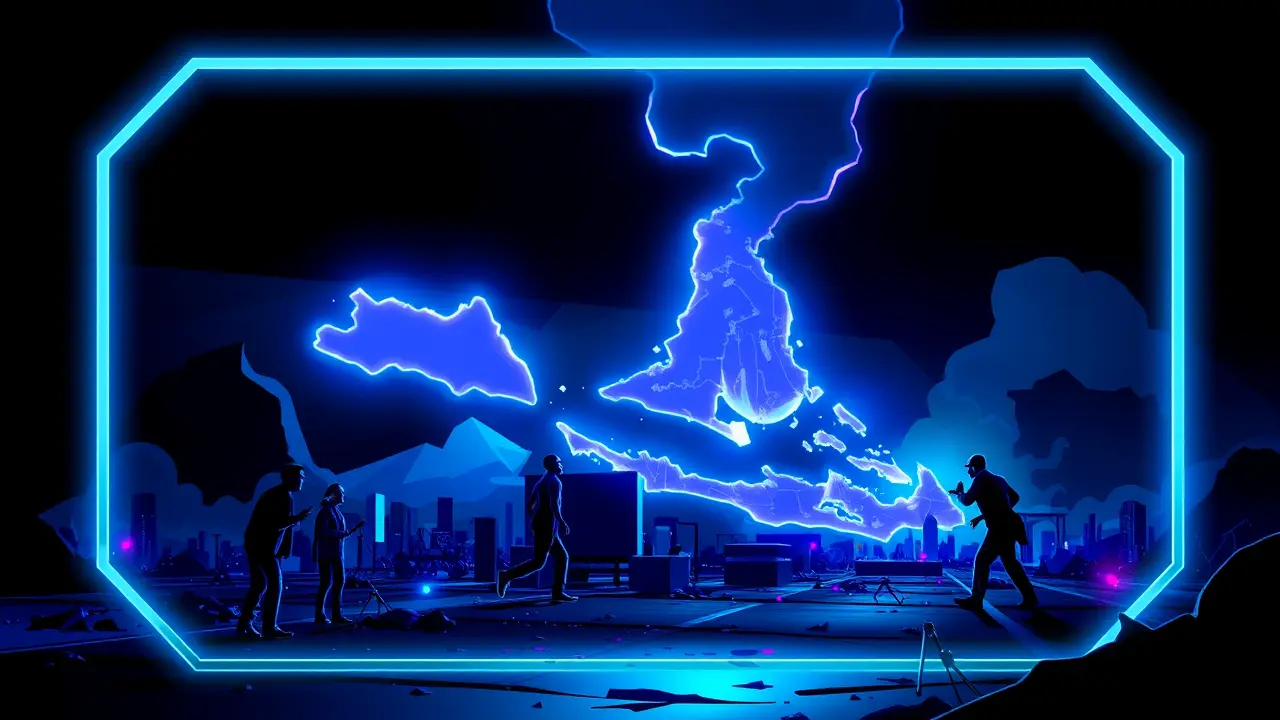
PoliticselectionsPost-Election Analysis
Tanzania Opposition Reports Hundreds Dead in Post-Election Violence.
EM
Emma Wilson
2 days ago7 min read
In a stark and escalating crisis that has plunged the nation into a state of profound uncertainty, Tanzania’s main opposition has reported that hundreds of citizens have been killed during three consecutive days of violent post-election protests, a claim that stands in direct and chilling contradiction to the government's official denial of employing any 'excessive force. ' As the country remained shrouded under a near-total internet blackout this Friday—a digital curtain effectively silencing independent verification and muffling the voices of those on the ground—a grim confirmation emerged from both a security source and a diplomat based in the economic hub of Dar es Salaam, who independently attested that the death toll had indeed reached a scale 'in the hundreds' as demonstrations persisted.This violent crackdown represents a devastating setback for President Samia Suluhu Hassan, who had ostensibly sought to cement her political authority and silence internal critics within her own party through an emphatic victory in Wednesday's contentious election. The unfolding tragedy draws disturbing parallels to other regional flashpoints where electoral disputes have spiraled into bloodshed, raising urgent questions from international human rights observers about the fragility of democratic processes in the region.The strategic imposition of the internet shutdown is a tactic increasingly documented by digital rights groups, not merely as a tool for information control but as a weapon to facilitate atrocities away from the global spotlight, preventing the flow of visual evidence and the organization of medical aid and legal support. Eyewitness accounts, painstakingly relayed through fragmented and often encrypted channels, describe scenes of chaos in suburban neighborhoods of Dar es Salaam and other urban centers, where security forces reportedly used live ammunition against unarmed protesters.The main opposition party, whose leaders now fear for their safety, is calling for an immediate international investigation, arguing that the scale of violence amounts to state-sanctioned brutality aimed at crushing dissent. This situation places immense pressure on regional bodies like the African Union and international partners, including the United States and the European Union, who have invested in Tanzania's democratic stability, to reassess their diplomatic engagements and potential sanctions.The historical context is critical; while Tanzania has long been viewed as an oasis of relative calm in a turbulent region, this eruption of violence echoes the darker chapters of its neighbor Kenya's 2007-2008 post-election crisis, underscoring a volatile nexus of ethnic tensions, political ambition, and the struggle for control over state institutions. Analysts fear that without a credible, transparent, and independent inquiry into the allegations, the social contract between the Tanzanian government and its people could be irreparably broken, fueling a cycle of resentment and instability that may take a generation to heal. The human cost, measured in the hundreds of lives lost and countless families shattered, now hangs over the nation's future, a somber reminder that the pursuit of power, when divorced from the principles of accountability and human rights, can exact a terrible price on the very citizens it purports to serve.
#Tanzania
#election violence
#protests
#casualties
#internet blackout
#government denial
#featured
Stay Informed. Act Smarter.
Get weekly highlights, major headlines, and expert insights — then put your knowledge to work in our live prediction markets.
Related News
Comments
It’s quiet here...Start the conversation by leaving the first comment.
© 2025 Outpoll Service LTD. All rights reserved.










